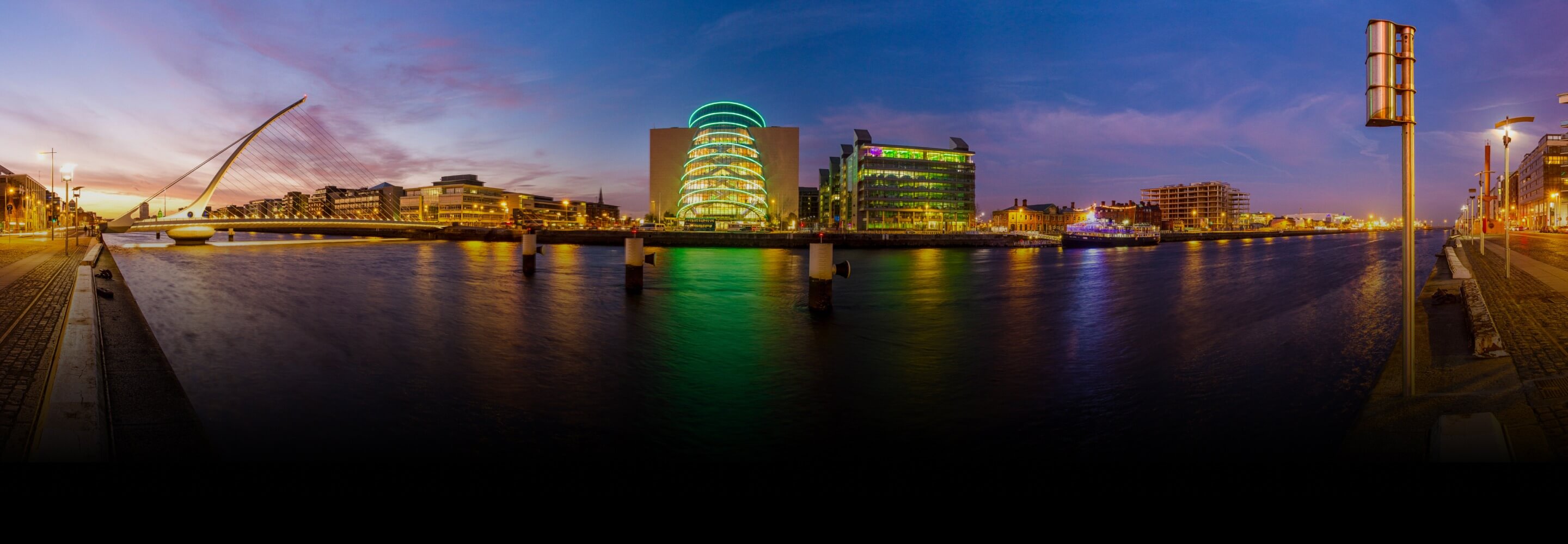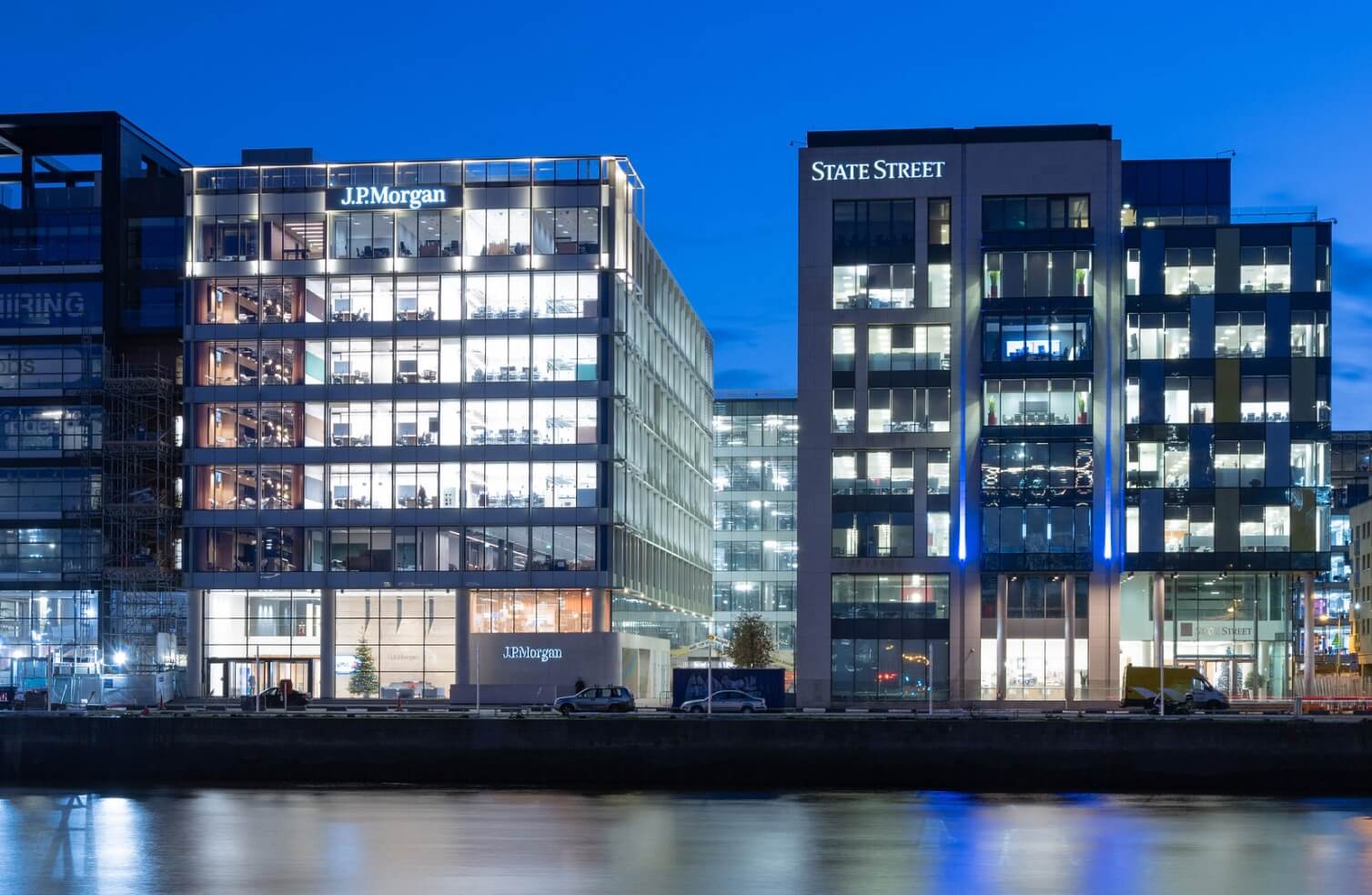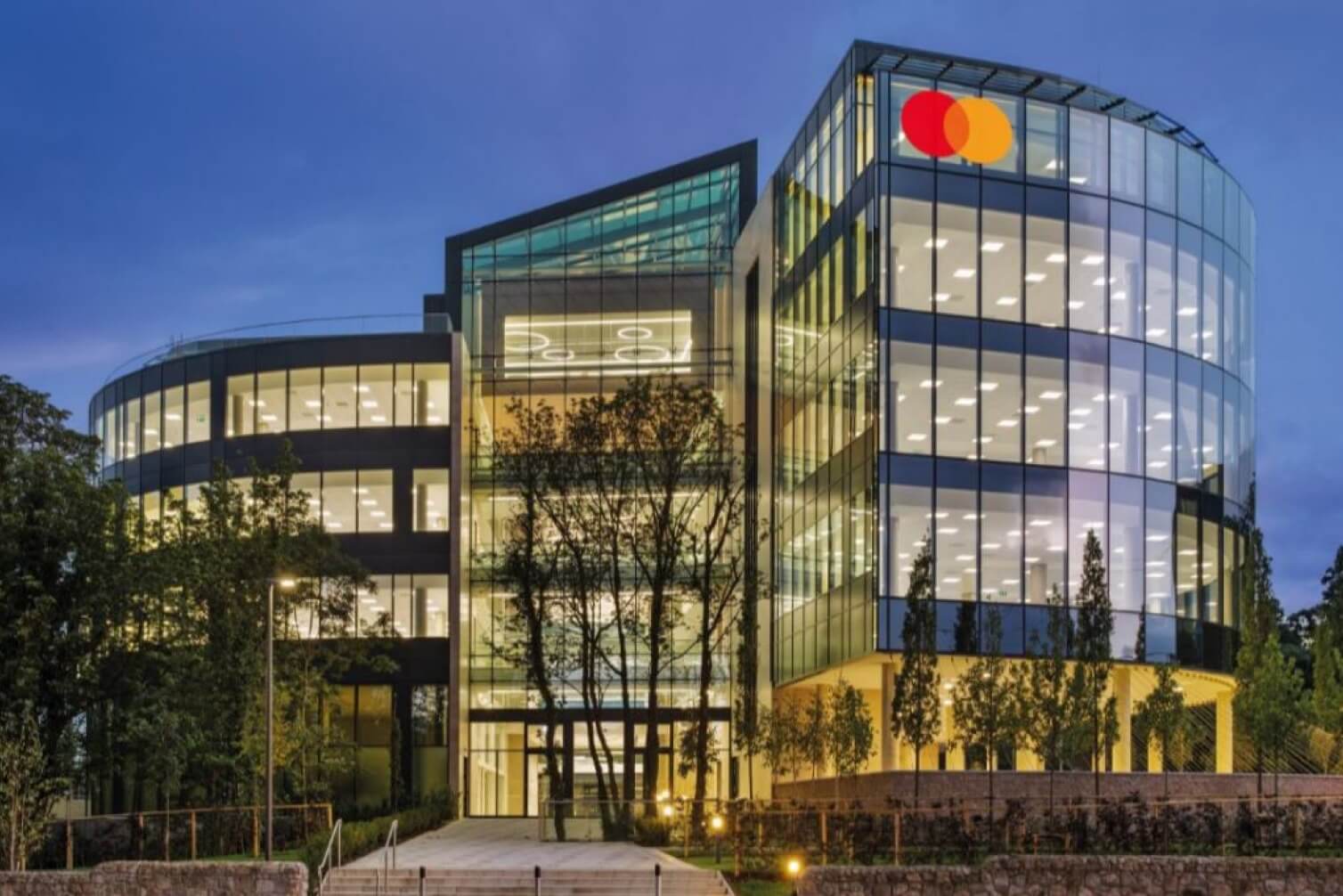The Reuters news staff had no role in the production of this content. It was created by Reuters Plus, the brand marketing studio of Reuters.
Paid for and posted by



Why Ireland is the next global finance hub
The financial services industry is one of those areas, like life sciences and technology, where Ireland punches well above its weight.
Over the past four decades, an ever-increasing number of financial institutions have set up operations in Ireland. From major international banks and investment managers, insurers and reinsurers, to fintech and payment companies. Supporting them is an expansive ecosystem of companies providing essential services, including legal and regulatory advice, tech support, software development and cybersecurity, anti-money laundering and investor relations services.
“Ireland’s offering as a leading international financial services hub within the EU continues to appeal to overseas investors looking to service their client base from this market,” says Maeve McConnon, Head of International Financial Services at IDA Ireland, the country’s inward investment agency.
There are now more than 300 internationally focused financial services companies operating in Ireland. The roster includes 20 of the top 25 global financial institutions. Their presence makes Ireland one of the largest exporters of financial services in the EU, according to data from the World Trade Organization.

Caption goes here

Choose language:
EN
Sir John Rogerson’s Quay, Dublin Docklands, Ireland.

Established financial leaders
Many of these institutions have substantial pan-EMEA operations in Ireland. US banking giant Citi, for example, employs more than 3,000 people through the European Headquarters of its corporate bank, providing a wide range of services including: treasury and trade solutions; securities and fund services; corporate and investment banking; custody and fund servicing; transaction banking; agency and trustee services; capital markets and global payments.
State Street, another major US firm, employs over 1,500 people to provide financial services to institutional investors, including fund administration services for both domiciled and non-domiciled funds, and custodian services. In March 2024, State Street officially launched a global cybersecurity centre of excellence in Kilkenny, the only dedicated cybersecurity hub outside of the US, supporting the needs of its employees in over 200 geographic markets worldwide.
“Our new office and global cybersecurity center reflect State Street’s commitment to Ireland and our confidence in the South-East region's exceptional talent pool” says Ron O ’Hanley, Chairman and Chief Executive of State Street. "We are grateful to the Irish government for its support in our continuing journey to enhance our operational capabilities by leveraging Ireland’s exceptional workforce and its strength as a fund domicile and ecosystem.”
Along with well-established financial services, emerging areas such as artificial intelligence, fintech and cybersecurity, have become increasingly important. In May 2023, BNY Mellon announced the establishment of a Digital R&D Hub in Dublin to drive innovation in AI, machine learning, and data analytics for clients globally.
“This investment reinforces BNY Mellon Irelands position at the leading-edge of financial services research and development and helps cement Ireland’s position at the forefront in driving innovation in the financial services sector globally” says Paul Kilcullen, BNY Mellon CEO of Funds Services Ireland and Ireland Country Manager.
IDA Ireland views the investments from State Street and BNY Mellon as strong reference cases for the development of Ireland’s financial technology capabilities. The country has a long history of developing market-leading positions in critical parts of the finance industry, including aircraft leasing, fund management and bond issuance.
Many of the world’s leading financial services companies also have significant R&D operations in Ireland. Dublin is proudly home to Mastercard’s only European Technology Hub at its state-of-the-art campus where they are dedicated to shaping the future of commerce through deep expertise in payments security, APIs, emerging technologies and more. Dublin is also home to one of Citi’s Global Innovation Labs, while Fidelity Investments’ FCAT lab provides technology and operational business services to the US in areas such as cloud, cybersecurity, digital assets, AI and the metaverse.
More than 50% of the world’s leased commercial aircraft are owned or managed from Ireland. And the country is the third-largest funds domicile in the world, servicing more than €5.6 trillion of assets under administration. More than 1,000 fund managers from over 50 countries have assets administered in Ireland, with 17 of the world’s top 20 global asset managers offering Irish-domiciled funds.
The Irish Stock Exchange—part of the wider Euronext Group, which also has markets in Amsterdam, Brussels, Lisbon and Paris—is a world-leading venue for the listing of funds and structured debt products. The Irish bourse currently lists more than 3,500 bonds and several hundred exchange-traded funds (ETFs) and is Europe’s largest domicile for ETFs.
All this activity has made Ireland a thriving European financial hub. The authorities have set ambitious targets to further develop the sector. It will be helped by the robust regulatory oversight of the Central Bank of Ireland, a broad and deep pool of skills and a stable business and political environment. Ireland also offers a stable and transparent tax regime, with commitment to the OECD agreement of a global corporate tax rate of 15% for firms covered by the international agreement, and 12.5% for companies outside the scope of the global minimum (revenues of <€750m).
Forging a global reputation
A financial trading powerhouse
Ireland’s financial services exports hit €20.8 billion in 2023 – up from €9.7 billion a decade earlier – according to the Central Statistics Office. A recent report by the World Trade Organization placed Ireland as the eighth-largest financial services provider in the world, behind the likes of the U.S. and Singapore. Ireland outperformed countries with arguably stronger international reputations for banking and much larger European economies such as France and the Netherlands.
These statistics point to a healthy financial services market well integrated into the global economy forming part of a diverse trade mix.
Ireland is your gateway to collaboration.
IDA Ireland can help you forge the path. Find out more here.
Read next
Disclaimer: The Reuters news staff had no role in the production of this content. It was created by Reuters Plus, the brand marketing studio of Reuters. To work with Reuters Plus, contact us here.

Ireland: A global center for life sciences

Tapping Irish talent to drive tech companies

Coming soon...
JP
EN
EN
A Portal to Europe

Offices at the Eamon De Valera Bridge in Cork City, Ireland.
Fintech trailblazers
Online payment processing giant, Stripe, was founded in 2010 by two Irish brothers, Patrick and John Collison, and today operates from dual headquarters in Dublin and California. Dublin is in a time zone which offers an ideal link between the major financial centres of Asia and New York. As part of the European Union, it also provides a base for banks and other financial services providers to operate across the largest single market in the world.
While much of the financial industry is focused in and around the capital, Dublin, and its International Financial Services Centre, more than a third of financial services companies in Ireland are now based outside the capital. Cities such as Cork, Galway, Limerick, Kilkenny and Waterford all have thriving financial sectors, and smaller towns are also home to major international players and their subsidiaries.
Sumitomo Mitsui Banking Corporation (SMBC) has a significant presence in Tralee in southwestern Ireland thgouh its wholly-owned technology subsidiary, JRI America. The Tralee entity provides cybersecurity, software development, cloud infrastructure and other technology services to the SMBC group, and hosts SMBC's only Security Operations Centre (SOC) outside Tokyo. JRI employs approximately 230 people in Tralee.
Ireland is one of SMBC's most significant sites within EMEA. Through its five Irish entities, the group provides services such as compliance and third-party risk management for the group's EMEA operations; corporate banking services, as a branch of its Frankfurt bank; and aircraft leasing through SMBC Aviation Capital, the world's second largest aircraft lessor as measured by fleet size and asset value.
Ireland has shown itself open to enacting regulatory reforms when needed. Ireland’s Investment Limited Partnerships (ILP) Act came into force in late 2020 and modernized the rules for private equity investors, making the country even more competitive for private investment funds, particularly those based in Asia, the US or other parts of Europe.
Among those to make use of the new structures now available is fund administration services group Ocorian, which announced in July 2022 that it had been granted three new licenses by the Central Bank of Ireland, covering alternative investment fund management (AIFM) services, fund administration services and real asset depositary services.
“These licenses will now enable us to offer our clients a wider choice of domicile for their funds within the European Union,” explains Mike Hughes, Ocorian’s Global Head of Service Lines.
Reforms to welcome the world
Caption goes here

Caption goes here

Mastercard Office in Leopardstown, Dublin, Ireland.

Caption goes here

Cavan Burren Park.

Limerick City, Ireland.

River Suir Bridge, Waterford, Ireland.

Dublin City, Ireland.

Caption goes here
Open for growth
The expectation is that more American fund managers will choose to domicile their structures in Ireland in the future, using the country as a base for their wider European operations. In the past, Ireland has proved adept at identifying financial services sectors with potential for growth. The country expects that both fintech and sustainable finance will provide a platform for further development, alongside the more established forms of financial activity.
The Investment Limited Partnerships Act is one of the priorities of the government’s growth strategy for the sector, known as Ireland for Finance, first published in 2019. In the latest iteration of this strategy, the government outlines clear and distinct ambitions in the areas of sustainable finance, fintech and digital finance, diversity and talent, and operating environment.



